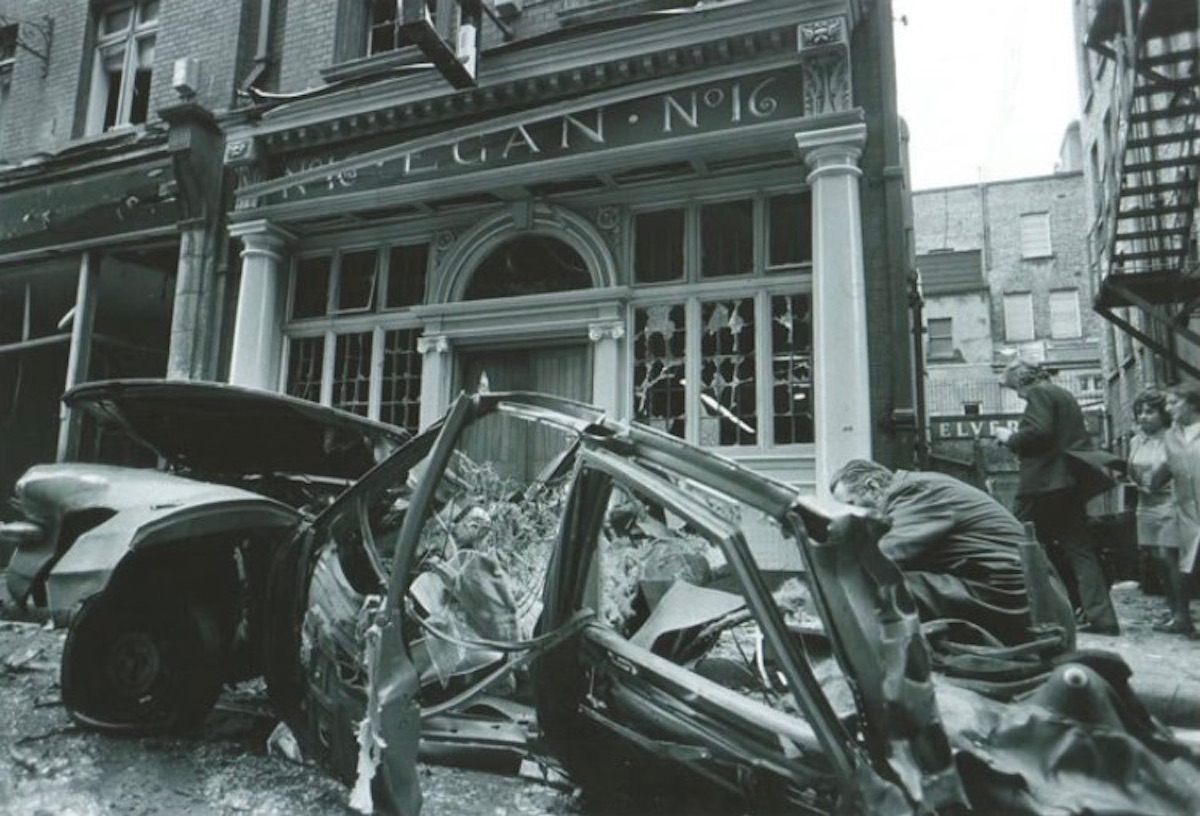
The 50th anniversary of a deadly bomb attack thought to have been the earliest act of British/loyalist collusion south of the border has been marked in Dublin.
On the evening of Friday, December 1, 1972, a car bomb detonated close to Liberty Hall in Dublin’s city centre. Eighteen minutes later, a second car bomb exploded nearby in Sackville Place, near O’Connell Street. Two men, both CIE bus conductors, were killed.
A few minutes before the first explosion, a meaningless ‘warning’ was telephoned to a loyalist newspaper in Belfast by a man with an English accent.
At the time of the explosions, the Dublin parliament had been debating the Offences Against the State (Amendment) Bill. The amendment would have given the State much greater powers against republicans, including the controversial use of non-jury courts.
Prior to the explosions many commentators felt the Bill would fail. However following the explosions there was a one-hour adjournment, after which the amendment was passed.
Despite allegations of British collusion with loyalist paramilitaries in the car bombs, no one has ever been arrested for the attacks. Justice campaigners have fought for decades for both the London and Dublin governments to release files they believe would give the families and survivors some answers.
“A lot of these families have passed away not knowing what really happened,” said Monica Duffy-Campbell, widow of Tom Duffy, one of those killed in the Sackville Place bombing.
“I’m not looking for a court case, repercussions, for anyone to be punished – I just want the truth so I can pass it on to my family – to Tommy’s four grandchildren – so that they know what happened.
“I know in my heart what happened. But I want the government to come to me and say what happened. The Irish government has been complicit in this by doing nothing over 50 years to bring out the truth. That is where I get angry – at the injustice.”
She added: “It is 50 years, but it is the blink of an eye. In my memories it is just yesterday. Tommy will never go out of my eyes. I always see him.”
Tommy, from Castlebar, County Mayo, had been working late at the CIE depot beside Sackville Place, off O’Connell Street. He was supposed to be at home with his family but he was doing a colleague a favour by swapping shifts.
“A policeman and a doctor came to the door,” recalled Monica. “They said Tommy had been caught up in the explosion. My memory is that they wanted to give me an injection to calm me down, but they couldn’t because I was pregnant.”
Even now, Monica gets upset remembering being brought to see his body in the funeral home.
“I wanted to see him. They had to give me a box to stand up on so I could see into the coffin. They asked me not to touch him. But I gave him a kiss. That was that. It was a big funeral but I really just wanted to be alone and on my own.”
Half a century on, Monica says the profound loss to her, her daughter and their son – named Tom after his father that he never met – “doesn’t get any easier.”
![[Irish Republican News]](https://republican-news.org/graphics/title_gifs/rn.gif)
![[Irish Republican News]](https://republican-news.org/graphics/title_gifs/harp.gif)

